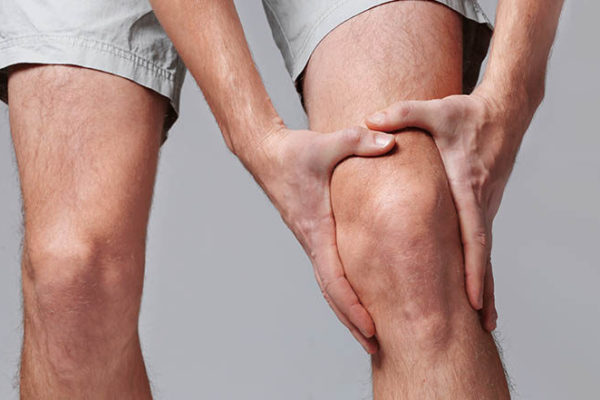
Knee Arthritis
Osteoarthritis is a type of degenerative joint disease that affects the knees. Osteoarthritis (OA) is a chronic illness in which cartilage between the joints breaks down. Cartilage preserves the surface of the bones and acts as a cushion for joints. Bones can rub or grind against each other without this cushion, producing discomfort, stiffness, and edoema. In England, one in every five persons over the age of 45 has osteoarthritis of the knee (18.2%). In England, the prevalence fluctuates from roughly 15% to 21% in different local authorities. Knee replacements are performed at a rate of 1/1,000 to 6/1,000 adults over the age of 45 in local authority areas. If a patient’s pain, edoema, or significant joint damage persists despite conservative treatment, their doctor may recommend knee replacement or a knee injection. Before proposing surgery, doctors would usually recommend knee injection therapy. Injections can help relieve knee discomfort and improve function in some patients.
Your Care Pathway with us:
- To book an appointment call reception at 01189344055, email to [email protected] or click the button given below.
- Complete MSK examination and detailed MSK ultrasound scan.
- Discussion of your treatment plan; Treatment plan may include i.e. advanced treatments; cortisone/steroid injections, Ostenil Plus (Hyaluronic Acid), or conservative management like physiotherapy, shockwave therapy, massage, acupuncture.
Injection Therapy for Knee Arthritis
Corticosteroid injections
Osteoarthritis can make ordinary movements and everyday life challenging. Injections of corticosteroids are one of the most common knee injections. Corticosteroids are injected directly into the knee joint by doctors and qualified professionals to assist reduce knee pain and inflammation fast.
They’re frequently utilised to help with inflammation. Corticosteroids imitate the actions of cortisol, a hormone generated naturally by the adrenal glands. These aren’t the same as anabolic steroids, which are taken by bodybuilders to bulk up. Steroids can be taken orally in the form of pills or injected into the joint or soft tissue. The goal of injecting steroids is to deliver a much smaller dose of medication to the location of pain more precisely, resulting in a better outcome. The injected corticosteroid travels quickly to the site of inflammation and provides immediate relief to the inflamed area. It is more powerful than traditional oral anti-inflammatory medications and safer than oral steroids because it does not have many of the side effects that oral corticosteroid medications do.
Steroids can be given out in clinics. Some people experience alleviation nearly immediately, while others have symptoms several days afterwards. The benefits might last anywhere from a few days to more than six months, depending on the state of the knee. The level of degenerative change and inflammation, as well as overall health, all play a factor in how long the effects of the steroid injection will endure. It’s vital to keep in mind that steroid injections aren’t a panacea for arthritis. Additional cortisone injections may be beneficial, and up to three injections can be safely given over a twelve-month period.
Booking and Cost
To book a steroid injection call our normal reception 0118 934 4055 and ask to book an appointment for an injection. Or Book Online!
If on the day the decision is made not to proceed with the injection you will only be charged the normal clinic assessment fee.
Steroid Injection cost (including cost of steroid):
- Single injection: £250.00
- Two injections: £475.00
Hyaluronic acid injections
Hyaluronic acid injections are being offered to many patients as a possible alternative to steroid injections since they may be less toxic to the soft tissues in some circumstances and can provide pain relief for longer periods of time, needing fewer doses.
Many patients suffering from degenerative joint disease can benefit from hyaluronic acid injections. As with any injection, the benefits are only transitory but can last up to 6-9 months. Hyaluronic acid injections are generally thought to be quite safe, while a small percentage of people may feel pain for up to 48 hours thereafter. This normally goes away on its own and can be treated with rest, ice, and over-the-counter pain relievers.
Hyaluronic acid is a naturally occurring material in the body that can now be synthesised as a viscosupplement and utilised for therapy of painful degenerative joints by injection. For those with mild to severe degenerative osteoarthritis of the knee, HA injections are frequently recommended as a safe therapy option. Some people will benefit from a series of injections, while others will benefit from a single therapy. This can be reviewed with one of our expert clinicians to determine which option is best for you.
Booking and Cost
To book an Ostenil injection call our normal reception 0118 934 4055 and ask to book an appointment for an injection. Or Book online.
If on the day the decision is made not to proceed with the injection you will only be charged the normal clinic assessment fee.
OSTENIL® PLUS Injection cost:
- Single injection: £350.00
- Two injections: £675.00
Fluid aspiration via injection (arthrocentesis)
A knee joint generally contains a few millilitres of synovial fluid, which lubricates it for easy movement. Inflammation can promote fluid buildup in the knee. Arthrocentesis removes excess fluid from the knee, reducing swelling and relieving pain.
If your doctor suspects a joint infection, aspirating the joint fluid is critical. You give a lab a sample of your joint fluid to count, culture, and antimicrobial sensitivity.
Joint Aspiration Fee: £120
Book your appointment today – call 0118 934 4055 CONTACT US



